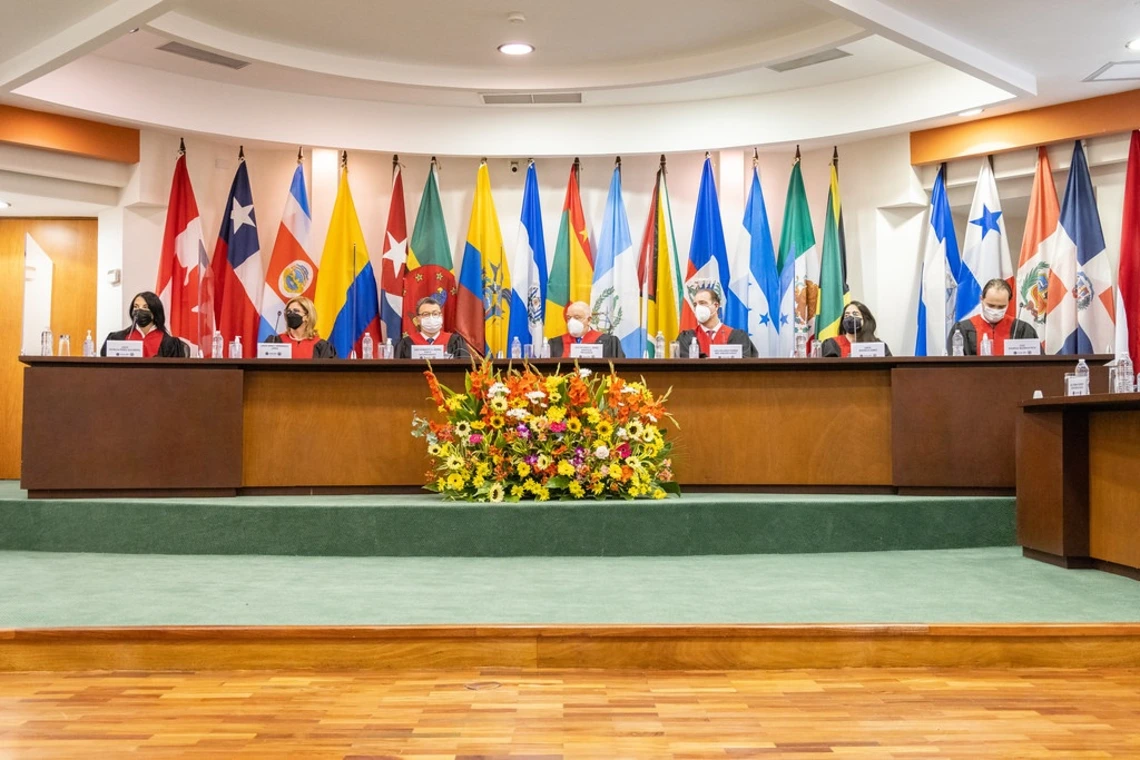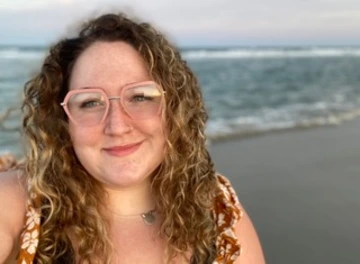A Victory at the Inter-American Court of Human Rights: Defending Indigenous Access to Radio Airwaves

The judges of the Inter-American Court of Human Rights, which adjudicates claims under the American Convention on Human Rights.
Inter-American Court of Human Rights

It is one thing to simply learn about the different international human rights instruments and legal structures, but it is another thing entirely to see it all play out in practice. In her Spring 2021 Strategic Litigation class, Professor Elisa Marchi offers her students just that: the opportunity to exercise their knowledge of international human rights in practice through the vehicle of strategic litigation.
As a Human Rights Practice MA student, I was selected to work alongside UArizona law school student Gabriela Centorami to work with the United Nations Special Rapporteur on the rights of indigenous peoples, Francisco Calí Tzay (who is based at the University of Arizona College of Law). Our task was to craft an expert witness testimony report to be utilized in the Inter-American Court of Human Rights case Maya Kaqchikel Indigenous Peoples of Sumpango and Others vs. Guatemala, for which the Special Rapporteur served as an expert witness.
This case was brought forth to the Inter-American Court of Human Rights due to the consistent violation of the right to freedom of expression and freedom from discrimination brought about by the active criminalization of indigenous radio stations. Guatemala considers radio frequencies a natural resource that must be rationed, leading to a bidding process for frequency ownership. This process of bidding inherently excludes indigenous communities because they are unable to compete with the high bids of major corporations.
Indigenous communities in Guatemala rely on radio frequencies for a variety of reasons, all of which are protected by various human rights instruments. Radio frequencies are the primary tool used for communication, the dissemination of information, and the preservation of indigenous language and culture. In the age of the COVID-19 pandemic, the radio frequencies are especially essential in spreading important information regarding health and safety as well as providing remote education in rural indigenous communities.
The argument in the case was that the state of Guatemala was actively upholding a discriminatory bidding process that marginalizes indigenous communities and violates their right to freedom of expression, freedom from discrimination, and to preserve and practice their culture.
The Special Rapporteur served as a valuable expert witness in this case due to his identity as an indigenous person from Guatemala as well as his role as the United Nations mandated Special Rapporteur on the rights of indigenous peoples.
Guatemala prides itself on its richly diverse population; the country’s population has one of the highest percentages of indigenous peoples. However, Guatemala also has an extensive history of marginalizing these groups and failing to protect them. To craft a powerful expert witness testimony, we used the historical, political, and cultural context of the case as a foundation. Evidence included interviews with the Special Rapporteur, who is himself Maya Kaqchikel from Guatemala.
My primary role in the writing of the report was to thoroughly examine the various legal mechanisms applicable to the case. To support the claim that Guatemala was not only failing to protect the indigenous peoples within its borders, but was also perpetrating human rights violations against them, I reviewed an array of documents in order to compile a list of legal evidence. Documents included UN treaty body reports, Special Rapporteur reports, international agreements pertaining to indigenous rights, and past cases that might have set precedent.
Because Guatemala has ratified almost every international human rights convention, this list of legal evidence was extensive. However, this only strengthened our claim because it truly demonstrated how the country was systematically marginalizing and discriminating against indigenous peoples and violating the rights it has agreed to uphold.
Combining the many facets of our research, the expert witness report served as a substantial testimony about how indigenous peoples are marginalized across contexts in the state. It served as an indication of the depth and extent of the human rights violations committed by Guatemala against the indigenous peoples.
In May 2021, the Special Rapporteur testified before the Inter-American Court of Human Rights. In December 2021, the Court ruled in favor of the indigenous peoples of Guatemala. The Court’s decision serves as a victory not only for the indigenous peoples in Guatemala, but for those throughout the Americas because it sets precedent.
Radio frequencies, a tool used for communication and expression, are essential in the preservation of indigenous culture, language, and identity. The Court’s decision means that Guatemala will have to amend its radio frequency policy to ensure that indigenous communities can express freely and adequately, without discrimination or criminalization. The Court’s ruling also ensures that other countries in the Americas will be held to the same standard regarding indigenous rights and the usage of radio frequencies and other media to communicate, practice culture, and disseminate information.
To be involved in this case was an incredible experience. I chose the Master of Arts in Human Rights Practice program at the University of Arizona because of its emphasis on transferring theoretical knowledge into practical work. Working on this expert witness testimony report alongside other practitioners was a perfect way to complete my program studies.
Taking such an active role in the process sparked an interest and passion to pursue international law as a human rights practitioner. In a few months, I’ll be moving to England to complete my LLM in International Human Rights Law and Practice at the University of York. I can’t wait to pursue law in an international setting and continue my studies as a human rights practitioner.
Read the expert testimony submitted by the Special Rapporteur
Read more about this case and its significance

